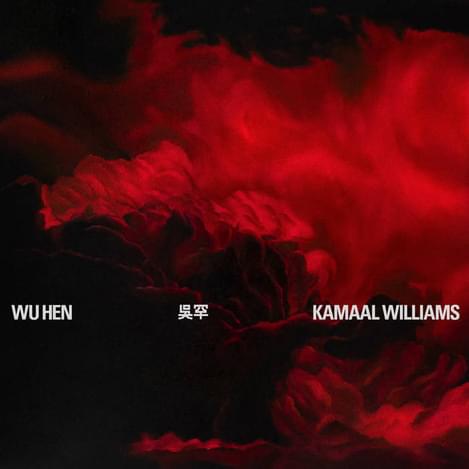Kamaal Williams will shake your expectations before delivering on Wu Hen

It’s a musical melting pot where funk, rap, R&B and jazz converge into William’s unique space of ‘Wu Funk’ and it’s breathless yet ethereal in equal measure.
His sophomore album, Wu Hen is more than just the nickname his grandma picked out for him when he was little. As he says: “to reach new heights requires separating ourselves from the material world and finding power in what’s intangible. That’s what music and art is for”.
It’s clear then that Williams has set his ambition higher; to communicate the abstract, the transcendental. This is perhaps why Williams has resisted referring to his music as jazz and instead to go for the aforementioned and eponymous ‘Wu Funk’.
The genre of jazz connotes certain ideas and expectations; expectations which Wu Hen often resists, and even actively defies in its approach. There are certainly nods to John Coltrane and Herbie Hancock on tracks like "Pigalle" and "1989 "but they almost feel like the exception to the rule.
If I were to explain Wu Hen to a stranger I’d say that it sounds like a jazz record, but doesn’t play by the rules of one and that’s because it is so deliberately unafraid of genre experimentation, not just in jazz but outside of it. In fact, at any one moment Wu Hen could be an R&B album, it could be funk the next minute and then a house or breakbeat track the next minute and that’s the case from the word go.
The album’s opener "Street Dreams" delights with orchestral finesse and leaps headlong into single "One More Time", a neatly crafted and tightly wound contemporary jazz/hip-hop piece which is worth showing up for alone. Later on in the album comes "Mr Wu" which is an out-and-out frantic house banger for the ages. Wu Hen is enthralling because you simply don’t know what its going to do next.
I also don’t believe you can talk about Wu Hen without mentioning the quality of both the performances and production work on the album.
There’s a spectral ‘big-band’ quality which creeps across the album through Miguel Atwood-Ferguson and Alina Bzhezinska’s performances on the strings and harp respectively. Whilst, on the other hand there’s also a delicate intimacy and closeness afforded through the crisp drum patterns and whinnying saxophone from Greg Paul and Quinn Mason. The clarity of these performances all stand out immediately and is testament to the work done in the moment and behind the scenes to get this sounding just right.
My one piece of criticism for Wu Hen is that it can often seem quite frantic and this is due to the fact that some songs roll into others with disparate ideas and styles in a way that occasionally felt jarring but equally, I always liked where it took me, it just shook me before getting there.
Kamaal Williams’ Wu Hen knows what it is and what it doesn’t want to be. It pays respect to the music it’s imitating and iterating upon, in all of its many forms and in spite of it, it manages to carve out a space in the scenes for itself. It’s hard not to leave the album thinking anything else than that I’m definitely sold on ‘Wu Funk’.
Get the Best Fit take on the week in music direct to your inbox every Friday

Emma-Jean Thackray
Weirdo

Viagra Boys
Viagr Aboys

William Tyler
Time Indefinite





